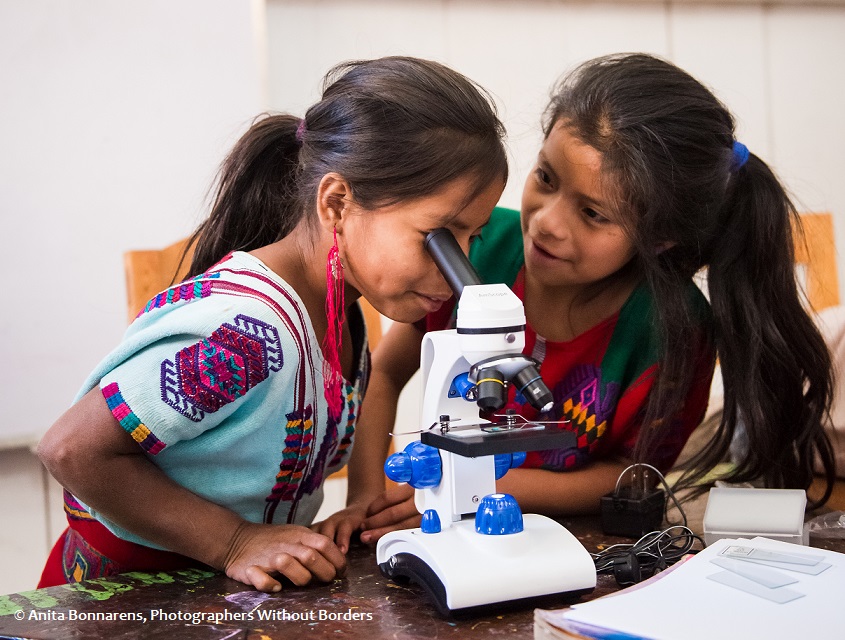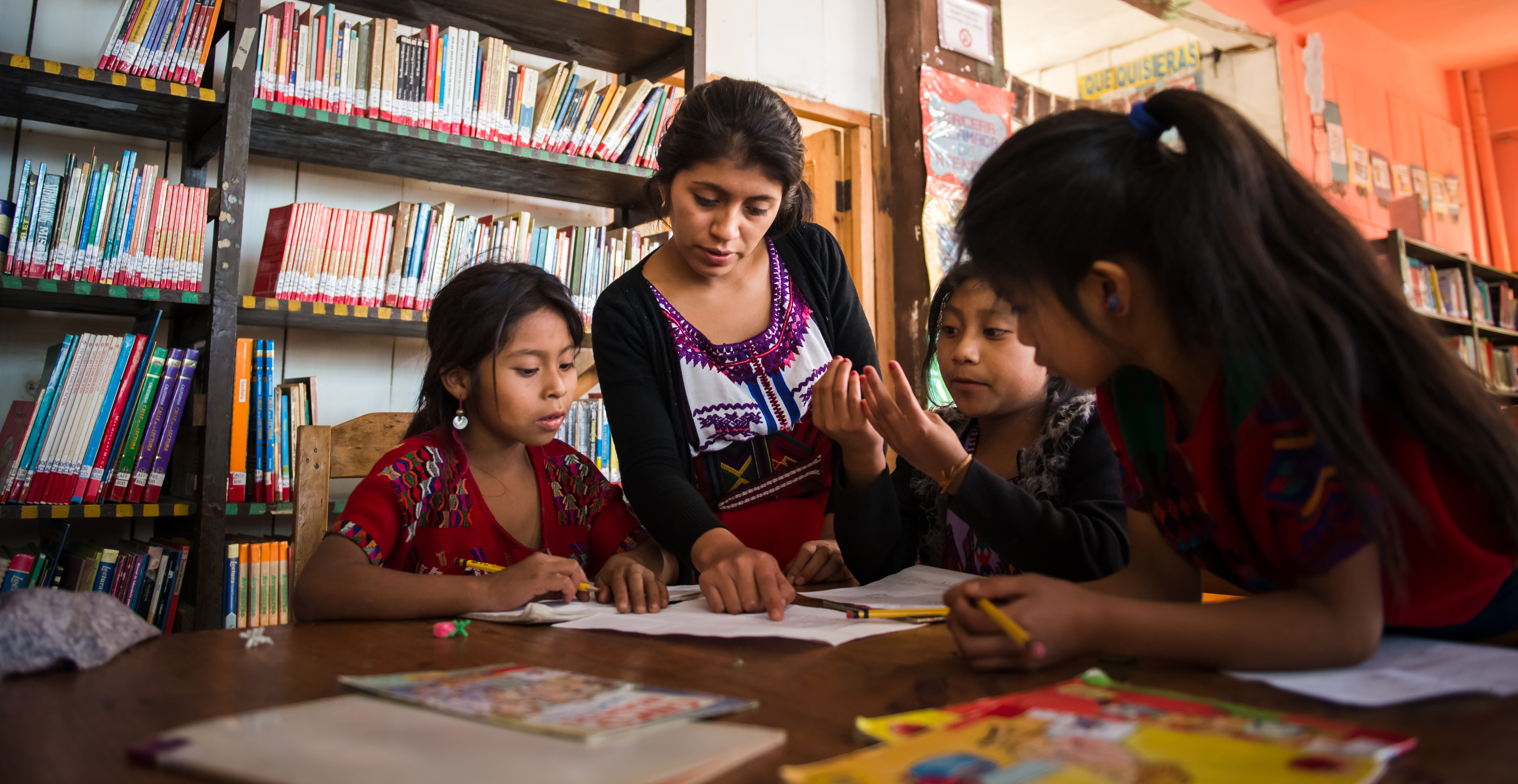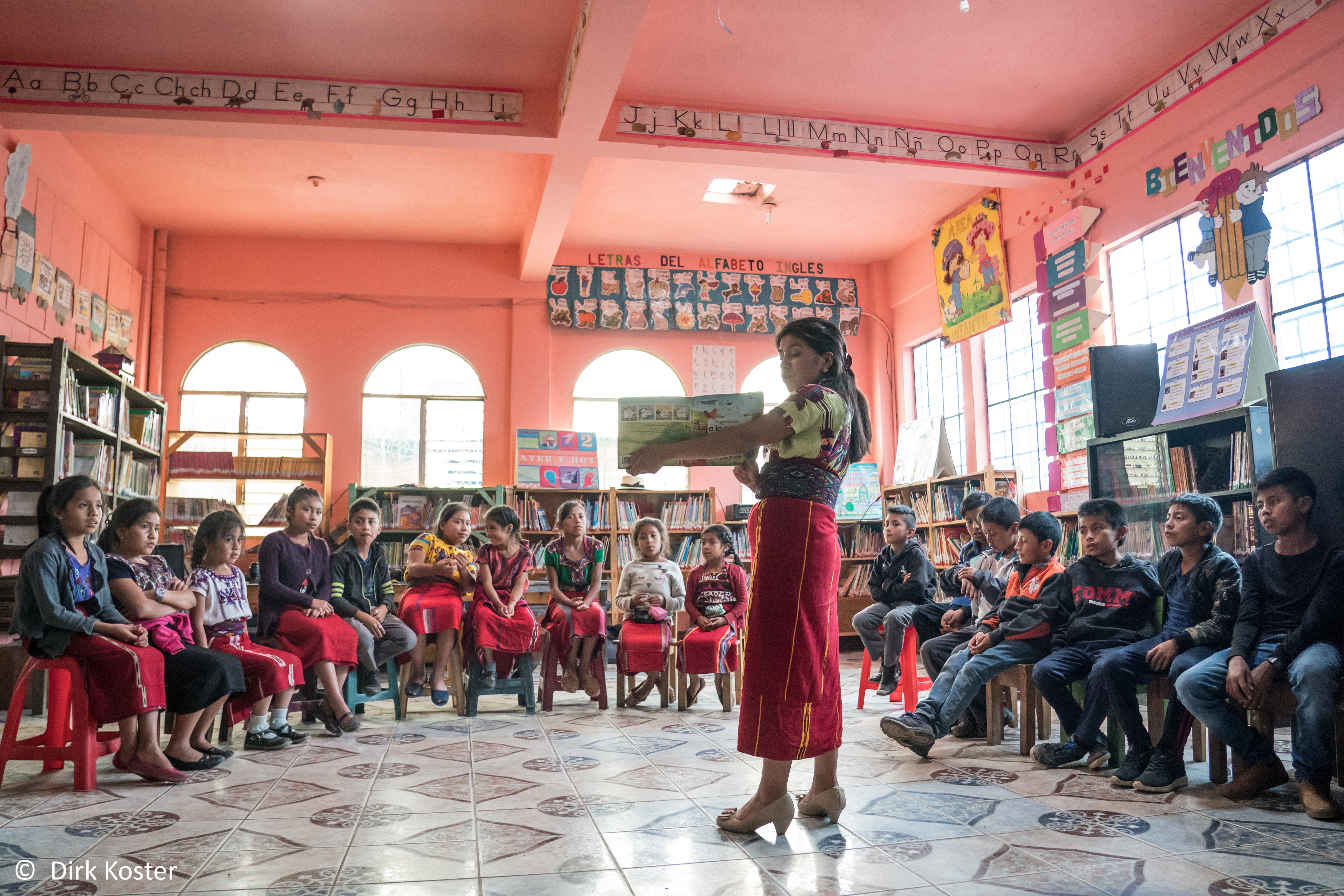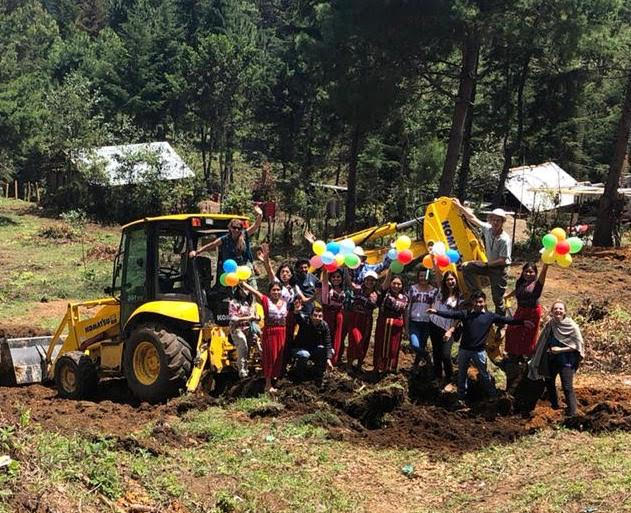17-year-old Lucrecia is doing everything she can to stay in school. Because her family has no computer, she attends virtual classes through the one cell phone that everyone in the household shares. She writes out all of her homework assignments by hand, then delivers them to every teacher’s doorstep.
Lucrecia lives in Chajul, a region nestled in the rural highlands of Guatemala, which was ravaged by the country’s 36-year civil war. 93% of people in this indigenous community live in poverty and only 3% of girls finish high school. Preventable diseases like tuberculosis and malnutrition are common.
Lucrecia has wanted to be a doctor ever since she was about 7-years-old. “My cousins and I used to make up play scenarios,” Lucrecia says. “I would be the doctor that would take care and cure them if they were sick.”
However, poor families have to pay to send their children to middle and high school, and the vast majority cannot afford it. Lecrecia would have been forced to leave school and help her family eek out a meager living farming corn, if it were not for an organization called Limitless Horizons Ixil (LHI), which offers scholarships to help students continue their education. Lucrecia jumped at the chance.
“I have no support from anyone else other than my sister,” she says. “No one in my family has ever asked me about my studies or which career I would like to follow. I am the one that tells them what I want to be: a doctor.”
Girls just wanna have a future
Young women around the world are fighting for their future. For girls, the pandemic can change the entire course of their lives, and send ripple effects throughout the world’s economies. If the coronavirus has shown us anything, it’s that we are all connected.
Before the pandemic, girls and women were making big strides. Twenty years or so ago, only half of the world’s girls continued their education beyond elementary school. Today two-thirds are enrolled in secondary school. This is huge because investments in girls’ education can boost whole economies. A recent study found that if developing economies ensured that all girls completed secondary school, it could lift GDP in those countries by 10% by 2030.
“Investing in girls should be prioritized across economies not only because it is the right thing to do, but because it also delivers unparalleled returns and impact across society and generations,” according to “The Case for Holistic Investment In Girls” study by Citi Global Insights and Plan International.

Kristy Wallace, the CEO of Ellevate Women’s Network, says that empowering women starts with helping girls. “I see every day the importance of investing in the success of women in the workplace. But we know that this is a process that must begin at the earliest stages of a girl’s life. Community support and access to education are critical to supporting girls in gaining the skills required to pursue their dreams.”
Those dreams could crumble as COVID-19 wreaks havoc around the world. Up to 20 million more girls could drop out of secondary school by the time the pandemic ends, according to a report from the Malala Fund. That means that more child marriages that could have been prevented may go ahead, and more will become teenage mothers and run out of options. These aftershocks would deal a devastating blow to girls and close off opportunities that were starting to open for them.

“I see every day the importance of investing in the success of women in the workplace. But we know that this is a process that must begin at the earliest stages of a girl’s life. Community support and access to education are critical to supporting girls in gaining the skills required to pursue their dreams.”
-Kristy Wallace, CEO, Ellevate Women’s Network
Building a new school
Grassroots community organizations around the world like Limitless Horizons Ixil are urgently trying to prevent the worst from happening. LHI is paying for Lucrecia’s internet connection so that she can continue to attend school virtually through the phone. It is also doing the same for more than 30 other students. In addition, they are offering virtual classes, remote books clubs, a library, weekly phone check-ins and monthly food and hygiene baskets. As a result, all of LHI’s students were able to finish their 2020 school year, which is a feat in a year with so many dropping out.
Katie Morrow founded the organization in 2004 after she moved to Guatemala to study Spanish and befriended Pedro Caba Asicona, a Spanish teacher from Chajul who became a co-founder.
“In this entire area of 50,000 people, he was the first person to ever graduate from a university, and he was very clear that he got the opportunities because he was a man and that his sisters only got to finish second grade,” Morrow says. “So he wanted to pay it forward.”
After visiting the town with Asicona and sleeping on dirt floors for a few weeks, Morrow was determined to help. She estimated that it took about $100 to send a child to middle school, and when she returned to the States she began getting her friends to pitch in.
“I felt really motivated and knew I could do something to make a change,” Morrow says. “We started on a budget of $1,000 that very first year with 10 friends, and sent 10 motivated students to middle school.”
Since its founding, LHI has made it possible for 226 youths to attend middle and high school. As long as the students maintain good grades and participate in program activities, they are eligible for six years of support through high school graduation. LHI’s approach is comprehensive, surrounding students with a holistic support system that goes beyond tuition and school supplies.
“They need access to computers and books to do homework, mentorship, and support with their families,” Morrow says.
Just the mental hurdles alone are immense since the kids often can’t even imagine themselves in middle school, since no one in their families has ever done it.

Slowly, attitudes are changing. Veronica Yet Tiu, LHI’s managing director in Guatemala, who grew up in Chajul, has been working to convince families that women can be successful and get jobs.
“We’re able to see now that fathers are saying ‘yes, of course my daughter will study, and I support her, I want her to have this opportunity,’ which we definitely weren’t seeing when we started, ” she says.
Lucrecia is determined to hang their family’s very first high school diploma on the wall later this year. “We have to fight when faced with adversity, no matter the difficulties ahead of us,” she says. “We must believe in ourselves.”
Girls like Lucrecia now have role models in other LHI graduates who were able to attend universities and become professionals. This year, LHI has big plans — to raise enough funds to build a new school from the ground up, hire teachers, and provide a higher quality of education to indigenous youths so that they are able to compete academically when they enter universities. Construction has already begun and is expected to open to the first class of 120 students next year.
“It will give hope, opportunity, leadership and skills for students to effect change and create jobs and bring economic security to their families and community, without needing to migrate to the U.S. in a search of a way out of poverty,” Morrow says.

To learn more about Limitless Horizons Ixil’s work, contact [email protected] or sign up here to attend their virtual launch event in April. To donate to Limitless Horizons Ixil, click here.


